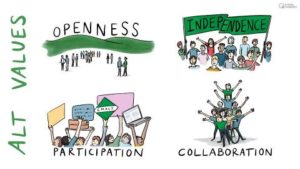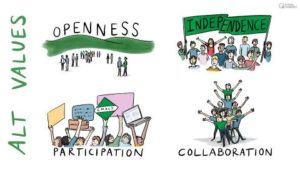
geralt (CC0), Pixabay
This may be of interest to some readers. One of the issues with AI and data science is that it is leading to pressure for change in vocational education and training. In the UK there is a particular shortage of data specialists. And in response, last year a new apprenticeship standard was released for Artificial Intelligence Data Specialists. The 24 month "typical duration to gateway" (I think this means typical length of the apprenticeship) as developed by the following employers: British Broadcasting Corporation, Public Health England, Bank of England, Royal Mail Group, Unilever, TUI, Aviva, Shop Direct, Defence Science Technology Laboratory – MOD, Ericsson, First Response Finance LTD, GlaxoSmithKline, AstraZeneca, EasyJet, BT, Barclays, Machinable, Office of National Statistics, UBS.
The overview of the role says it is to "Discover new artificial intelligence solutions that use data to improve and automate business processes."
The Institute of Apprenticeships and Technical Education web page goes on to say
The broad purpose of the occupation is to discover and devise new data-driven AI solutions to automate and optimise business processes and to support, augment and enhance human decision-making. AI Data Specialists carry out applied research in order to create innovative data-driven artificial intelligence (AI) solutions to business problems within the constraints of a specific business context. They work with datasets that are too large, too complex, too varied or too fast, that render traditional approaches and techniques unsuitable or unfeasible.
AI Data Specialists champion AI and its applications within their organisation and promote adoption of novel tools and technologies, informed by current data governance frameworks and ethical best practices.
They deliver better value products and processes to the business by advancing the use of data, machine learning and artificial intelligence; using novel research to increase the quality and value of data within the organisation and across the industry. They communicate, internally and externally, with technology leaders and third parties.


 The Association for Learning Technologies in the UK (ALT) has the
The Association for Learning Technologies in the UK (ALT) has the 


